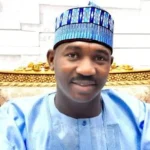The Hausa proverb, “If your brother’s beard catches fire, pour water on yours,” reminds us to take precautions and learn from others, as we might encounter the same. I do not wish to be philosophical, but this article may sound like one, as I use examples from this weekend’s elections in Sokoto, Kwara, and Edo states. And if we, as a country, want to progress, we must all learn from other events. Each of us has a role to play in this journey of learning.
To learn is to begin with observation—the raw encounter with reality. Through these unfiltered glimpses, we gather data – fragments of truth, unpolished and unshaped. Yet, data alone offers no wisdom; it is simply a silent witness. The act of transforming data into information is where learning truly takes root. Here, patterns emerge, meanings form and knowledge takes shape. Observation teaches humility, data demands discipline, and information invites understanding.
Let me put this idea in the context of an election. Voting on Election Day is the observation—a moment where citizens express their choices. These countless individual observations are combined into data, represented by the tallying of votes. However, the raw numbers tell us little; they only gain meaning when transformed into information. Information reveals the mood of the electorate, the shifting loyalties, the triumphs, and the failures. In this journey from observation to information, we learn new lessons and find the deeper truths of our collective will. In this journey from observation to information observations, we truly understand the will of the people and the lessons history needs us to see.
Yes, the old cliché that politics is a game of numbers will remain, but we must consider it as what it is—data. If we want to learn more from the recently observed Edo election, we must see beyond the numbers of APC-291,667, PDP-247,274, and LP-22,763, where PDP lost its incumbency. Similarly, the ruling party swept all the seats in Sokoto and Kwara’s LG elections. APC won all the chairmanship and councillorship positions in all the local government areas. Although, for Sokoto, the main opposition party—PDP—did not participate in the election.
- Tinubu seeks UN perm seat, debt forgiveness for Nigeria, others
- NIGERIA DAILY: How to Redefine Nigeria’s Future Through The Halal Economy
Every election observation is unique. The 2023 election was partly blamed for a lack of unity among the opposition. It was also fingered for voter fraud, which was ruled out by the “revered” justices of the apex court. Would it have made any difference if these issues had been addressed? There is a reasonable probability that some things may change, and some require further investigation.
Another lesson to learn is why Edo voted overwhelmingly for LP in the Presidential election, but only four per cent of the voters did so with this weekend’s result. What caused the loyalty shift in such a short time? There are many unanswered questions here, and we will only know when we probe beyond the numbers.
The counterfactual issue is how the ruling party—Tinubu’s APC—used the current economic hardship to their advantage. The August protest is one issue that is believed to have reduced its popularity. The party’s economic policies, like fuel subsidy removal, have triggered a cost-of-living crisis in the country. These issues were expected to work against them in the Edo election. But they did not. If it had, Edo, Kwara and Sokoto state voters would not have overwhelmingly voted for the ruling party. Instead, they won.
Success has many fathers, while defeat is an orphan. Many are claiming credit for the electoral victory in Edo. Ganduje suggests using a similar model in upcoming off-cycle elections. Akpabio is scheduled to present the certificate to Tinubu. Senator Oshiomhole, APC governors and Philip Shaibu boasted about their contributions. Wike showed his dancing moves on social media.
Yiaga Africa, a political observer, reported that the problem was mainly the lack of a decent electronic collation centre. They observed massive vote buying by the three leading political parties—APC, LP and PDP. These parties were also involved in result alterations and mutilations. The observer alleges deductions were made during collation, with the electoral officers complicit in this fraudulent exercise.
The PDP blames the loss on the power of incumbency, INEC for shifting the goalposts as results were being collated, and many other excuses. Again, what good are these excuses if we do not learn from them?
Yes, electoral fraud, rigging and disenfranchisement were alleged. But these allegations must be competently proven before the court. However, people do not have confidence in the judicial system. This is why politicians prefer to be challenged in court after winning as opposed to them doing so. They know the power of incumbency will work in their favour.
Besides, rigging ultimately requires voters’ acceptance or passive tolerance. It succeeds in environments where people are complicit. There will be no space for rigging when the electorate is vigilant, vocal, and organised. So, whenever there is a case of rigging, the general conclusion is that the electorate was given incentives to turn a blind eye to it. Of course, we must learn these lessons.
In the coming weeks, the Ondo State governorship election and several local government council elections will take place. Politicians must predict potential threats and devise ways to deal with them by avoiding defeats at all costs. Attention to voter fraud, using the power of incumbency, especially at the collation centres, is essential.
Political parties and candidates must take valuable lessons from this weekend’s election cycle. States like Kaduna, Kano, Akwa Ibom, Jigawa, Plateau, and Benue offer insights into the challenges and opportunities faced during elections. Whether in voter mobilisation, security management, or adherence to electoral laws, each state’s experience holds critical knowledge. Competent parties and contestants must apply these lessons if they genuinely stand a chance to fight in the contests.
One truth we must accept is that the anger shown against the APC in the August protest is no longer relevant today. The public’s voting pattern and body language, through voter apathy and their silence when defeated candidates allege electoral malpractices, is a clear signal. The results from Edo, Kwara, and Sokoto show that the people accept the current economic hardship and insecurity in the country.
When the people are truly ready for change, they will make it known. They will rise from their comfortable seats of indifference, set aside their deep admiration for the status quo, and perhaps even whisper a faint demand for something different.
The slogan campaign of the incumbent contestants is simple—maintain the status quo. They now know people are okay with Tinubu’s APC style of governance.
But the opposition party contestants have a mountain to climb. They must update their previous information with this weekend’s lessons. The August protests are a thing of the past. Voters are still attracted to inducements and apathetic to a free and fair electoral process. The electoral commissions can change the goalposts at any time. Above all, strategic alliances may not yield the expected outcome.
The lesson is clear: those who wish to win must adapt, learn, and face reality with eyes wide open, for complacency has no place in politics.

 Join Daily Trust WhatsApp Community For Quick Access To News and Happenings Around You.
Join Daily Trust WhatsApp Community For Quick Access To News and Happenings Around You.
